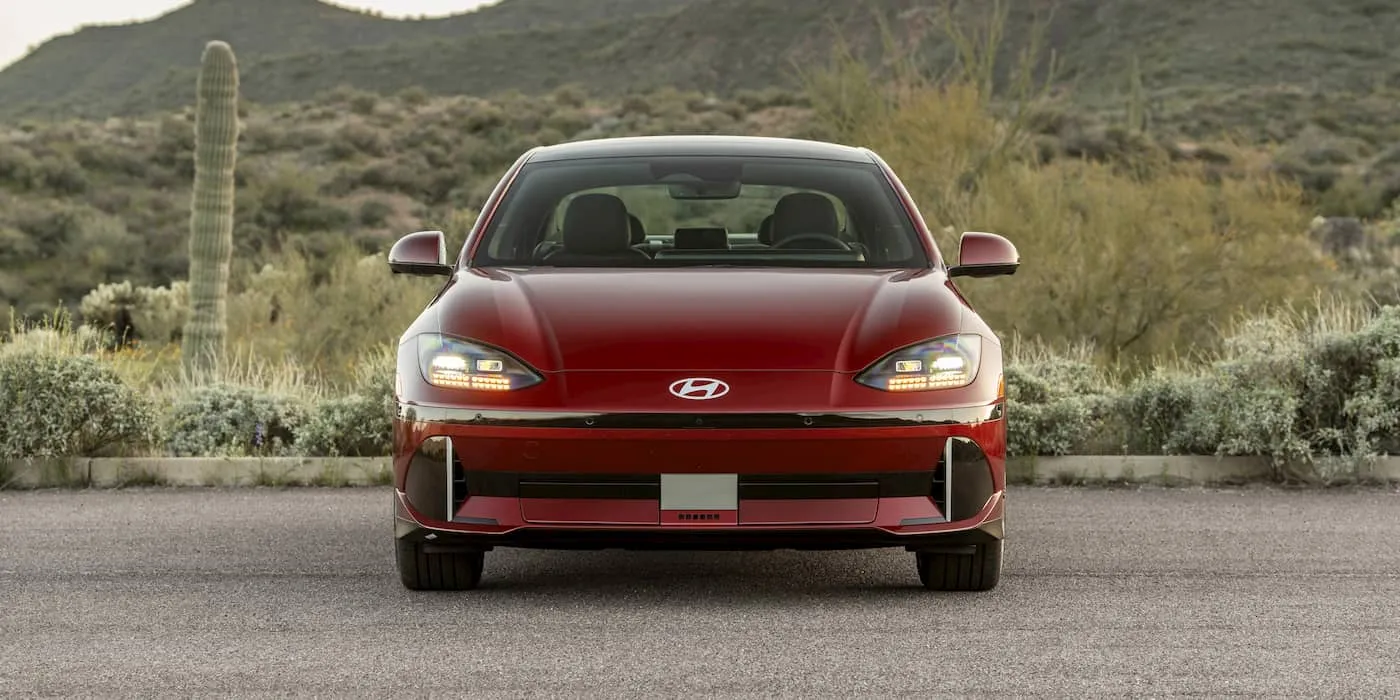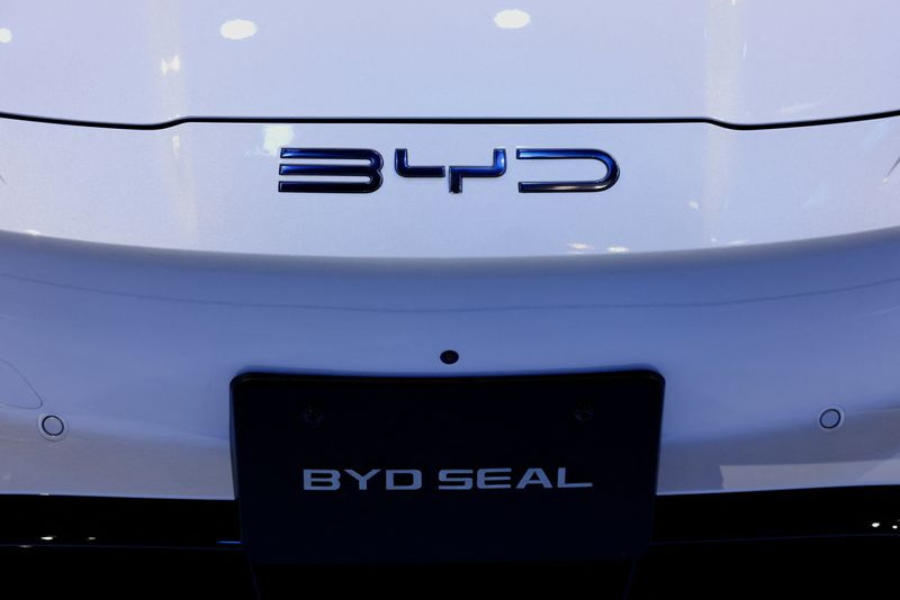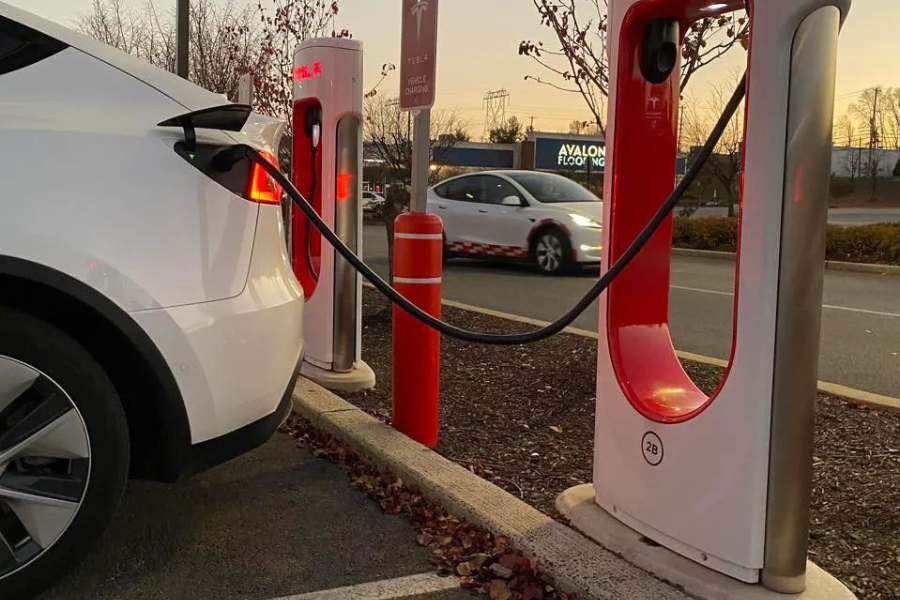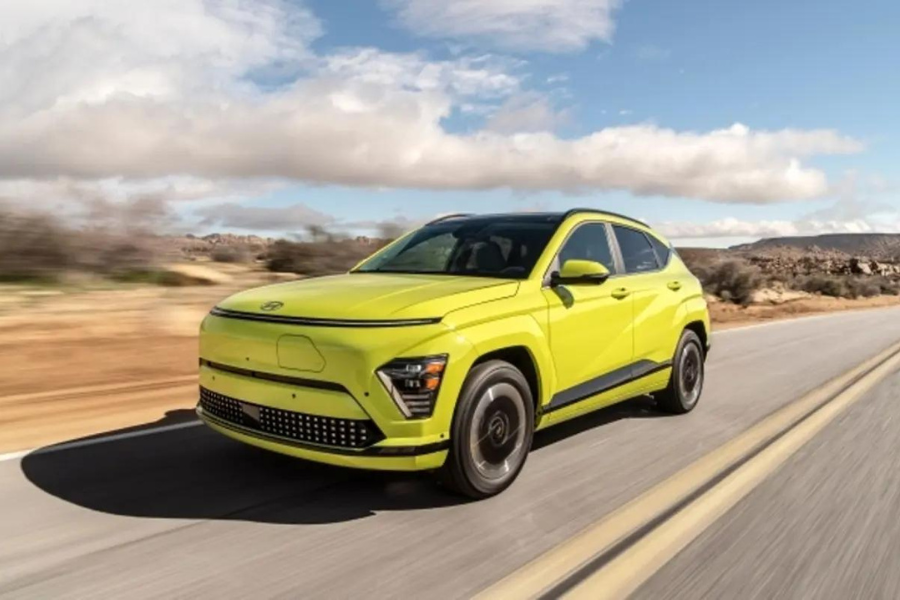People of all ages have become interested in electric scooters over the past few years. Essentially, an E-scooter is a motorized kick scooter. Due to its sleekness and easy operation, it is becoming more popular in the modern world.
Electric scooters are more accessible to drive and more comfortable than classic scooters, but they are also more eco-friendly and cost-effective. It is possible to ride an electric scooter with 220 pounds at 40 mph or 60km/h. It would be best if you better understanding the level regarding electric scooter works.
So How Do Electric Scooters Work? A battery powers an electric scooter’s motor, which is mounting on the scooter’s frame. The motor rotates gear which drives wheels of electric scooter, and throttle controls speed. This is the basic; let’s understand this in detail.
Basic Concept Of How Does An E-Scooter Work
If you are wondering about how does an electric scooter works, these are the basic steps:
- The battery stored electricity and transmit the current to the run motor.
- The motor converts this electricity to mechanical energy.
- When the motor is started and rotated, the mechanical energy is transferring the wheel through the gearbox.
- According to the model of the E-scooter, the motor will either start the rear wheel electric scooter only or both wheels.
- Electric scooters have their speed limits, but most motors come with a lock that protects them from operating at their maximum speed.
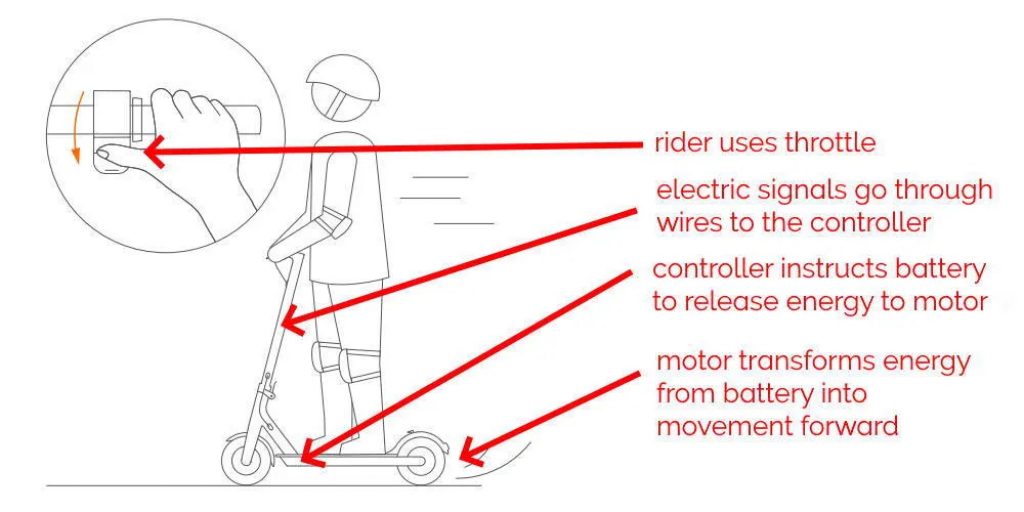
Electric Scooter Parts and Functionality
We need to split down the parts of an electric scooter into smaller pieces and understand each section individually to understand it better. E-scooter has slightly distinct components and a slightly different motor, but all scooters are composed of the same essential components. Consequently, for an electric scooter to perform the function properly, all of its components must connect with each part.
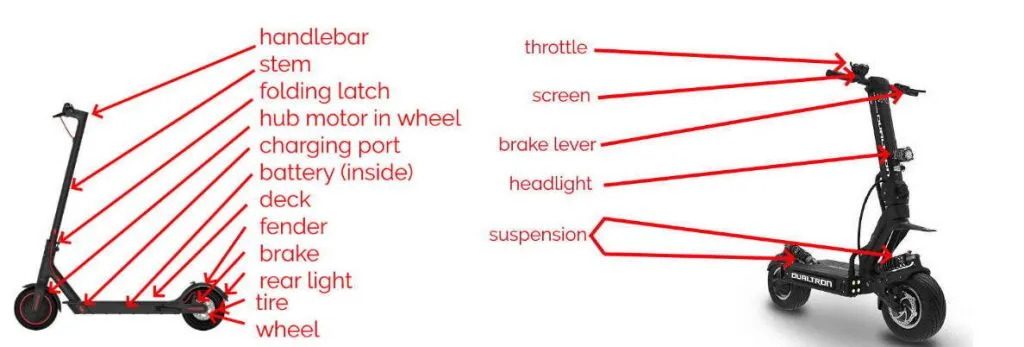
Scooter Motherboard:
The motherboard is the most important component of an e scooter. The data collected by the motherboard comes from the batteries, throttle, motor, and electric brakes, among other sources. All of the information that the motherboard acquires after collecting it distribute among each component.
Electric Motor:
The motor is also the main component in electric scooters, responsible for driving it with a chain linked to the wheel and causing it to move forward. Hub motors are the most common types of motors used in these scooters because of their fast response time, produce a lot of torque, and produce a lot of power. Brushes type engine is present generally in these scooters. Electric scooter with motor is much more dependable and less prone to malfunctioning.
Thumb Push Throttle:
The throttle is important when discussing electric scooters. Through the use of the throttle, you can instruct your scooter to keep moving forward at a specific speed. The amount of pressure you feel is determined by how quickly you would like to move. For a while, you feel an understanding, and you’ll have to squeeze out of every squeeze.
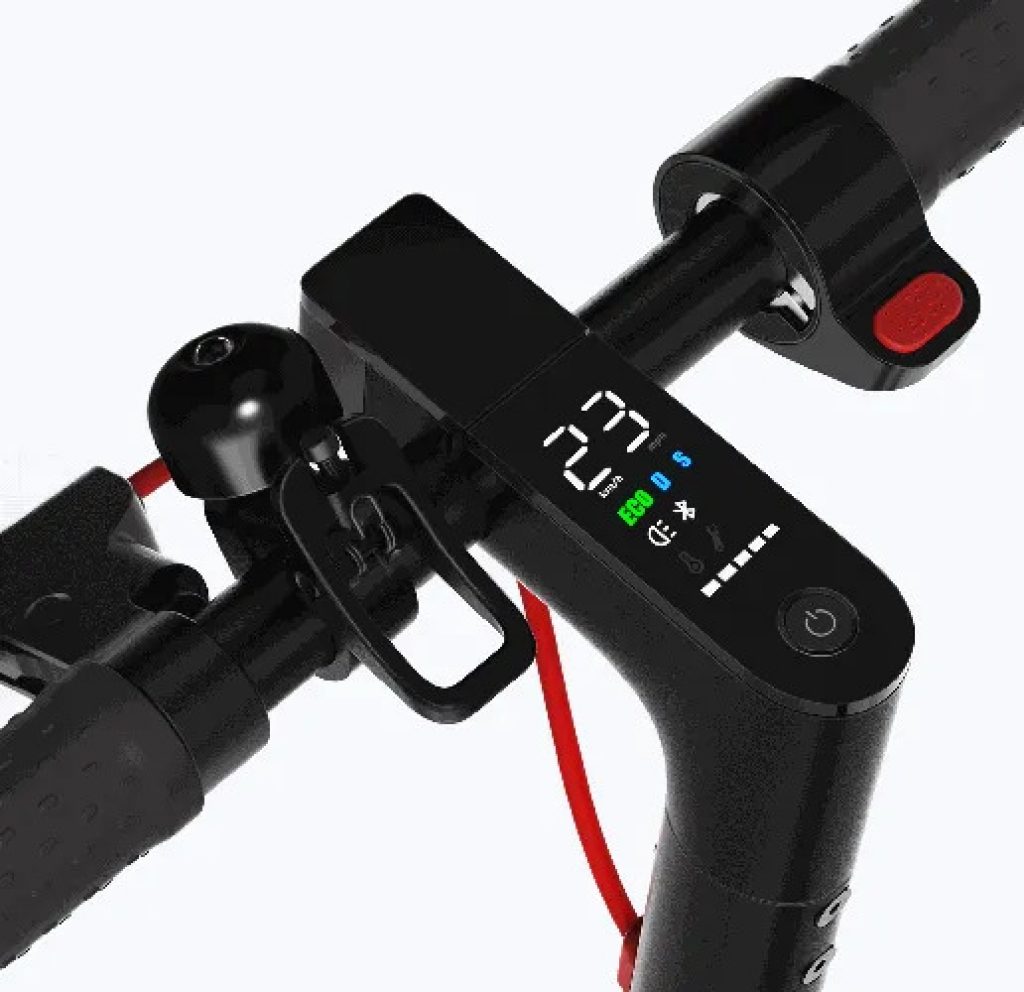
Battery Cells:
When you press the throttle, it activates your battery. The energy from the battery is transferred to the motor to determines the precise speed at which the battery powered scooter will travel. The motherboard provides this information and is used to determine the actual speed that the driver might have decided by pressing the throttle pedal.
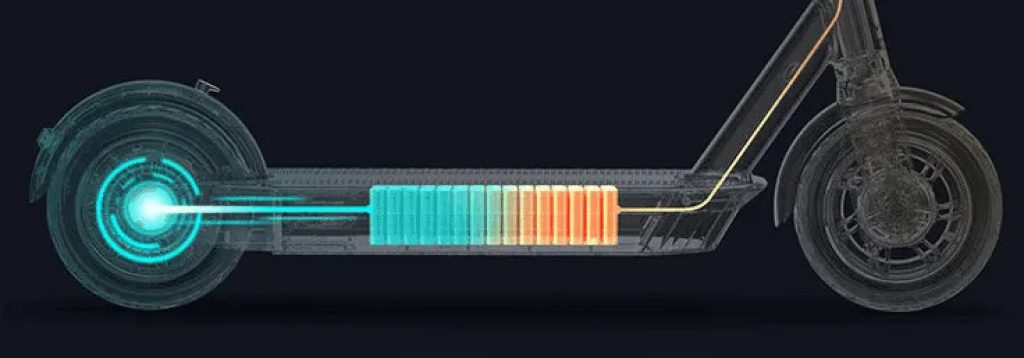
When it comes to electric scooters, batteries typically last 500 charging cycles before changing. Depending on how many volts your electric scooter has, it may or may not have additional batteries.
Drum OR Disc Brakes:
Drum and Disc brake system is using in electric scooters. Both of these frameworks have friction on a fixed surface, which makes them similar. Brakes are a necessary component of any electric scooter, and they must function properly.
Some electric scooter’s speed is more than 30 miles per hour, and at these speeds, the brakes may not operate as expected, putting you in danger of being injured. The brakes activate by pressing the brake lever on the steering wheel, resulting in heat generation during braking.
Frame Material:
The frame is the design-related part of the scooter, and it is generally foldable to make it convenient to transport. Various materials are using to construct electric scooters; aluminum and stainless steel are the most common.

A seat is available on some electric scooters, but most modern scooters are devoid of one. Different companies design different frames as per their priorities. In general, most weight( 24 – 30 Pounds) in electric scooters is composed of the frame.
How Do These Parts Communicate?
The motherboard/management system serves as the brain of your scooter. This section specifies what every other section should do. It collects data from the battery, the motor, the throttle, and the electric brake system. It then makes use of the data collected and distributes it to each component.
In our opinion, the motor is the heart and soul of your scooter with the chain-driven motor. The motor locates beyond the wheel or a hub motor mounted inside the rim of your wheel.
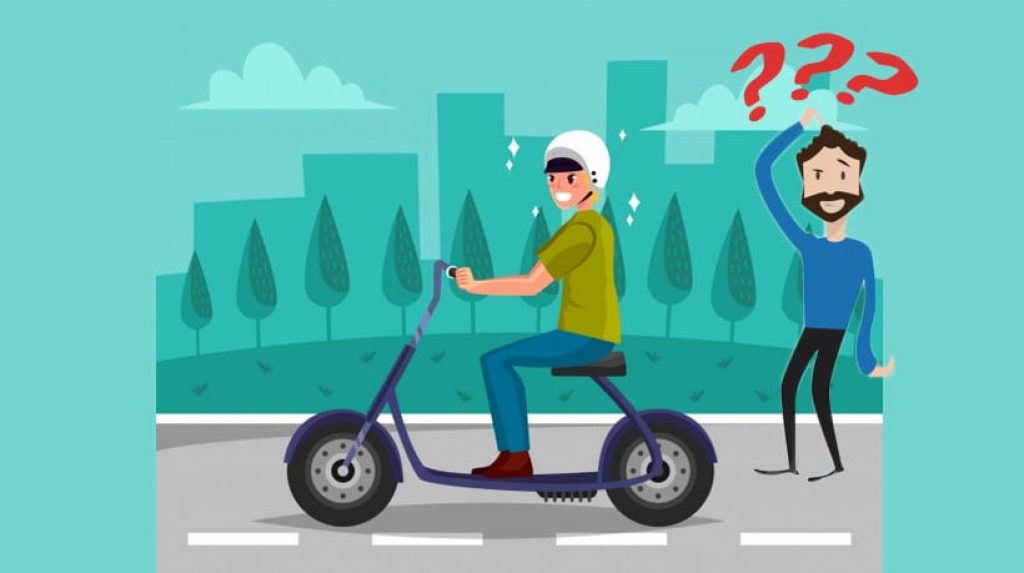
Hub motors are great then outboard motors in response time, sound levels, torque, and overall power output, among other factors. However, to function properly, more parts must work together with the motor to move your vehicle forward.
When you push the throttle down, you tell the motherboard that you are okay with moving forward with this speed. Depending on your preference, you can either lightly press it to go slowly or fully press it to go speedily.
Motherboard opens the floodgates, allowing the battery power to maintain under control. The energy from the battery is transfer to the motor through a series of wirings, and it also receives a signal indicating how fast it should rotate.
Motherboard sends the signals, informing the computer of the exact amount of momentum required to achieve the speed you have selected by pressing down on the throttle. The motor begins to rotate, and you are off and running.
How Does the Battery Run an Electric Scooter?
Each battery consists of three basic parts: cathode (with a positive charge), anode (with a negative charge), and the electrolyte (which is a sandwich between them). Lithium-ions travel with the assistance of electrolytes, which provides them with this motion property but deprives them of electrical conductivity in the process.
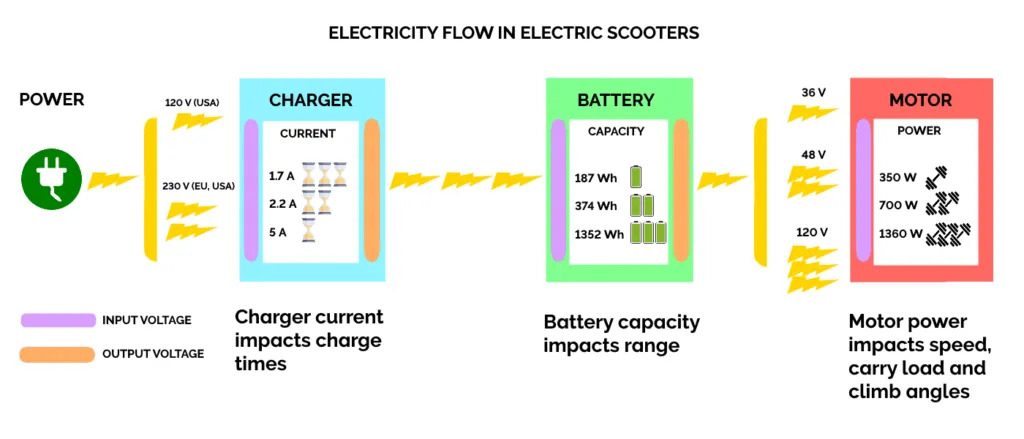
Another layer within the structure refers to a separator. As a result of anode oxidation during the discharge, lithium atoms near the boundary attached with electrolyte release the valence band at the time of the discharge process.
A release of electrons occurs at the feeder, which is to be feed from the external circuit. At the same time, positive lithium ions transport via the electrolyte through the cathode. While this occurs, lithium ions from the external circuit join at the cathode, combining them with inner circuit electrons.
A separator is using between both the anode and cathode to avoid short circuits from occurring. The capability of a separator is to allowing lithium ions to escape.
If you have any queries and want to know more about electric scooter facts, feel free to contact us in the comment section.

